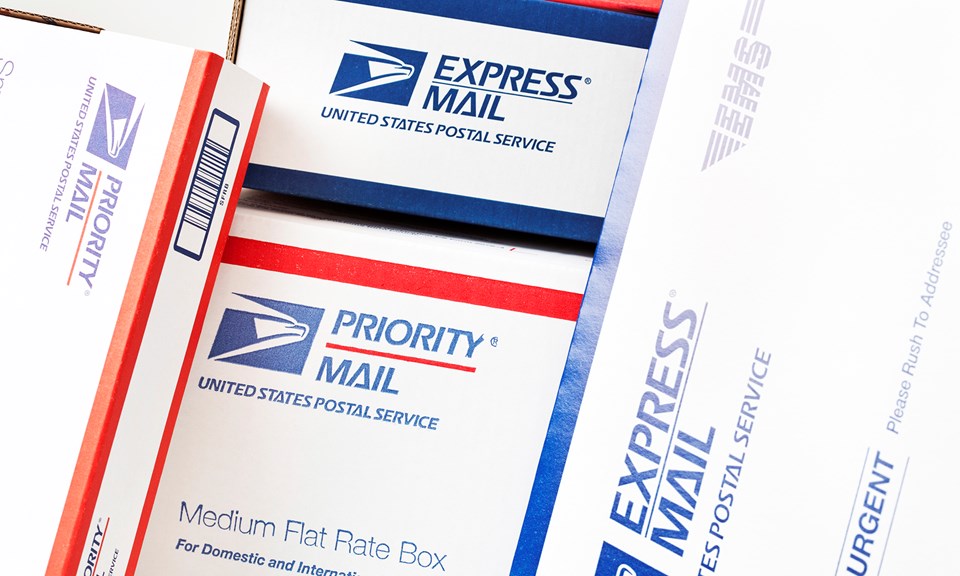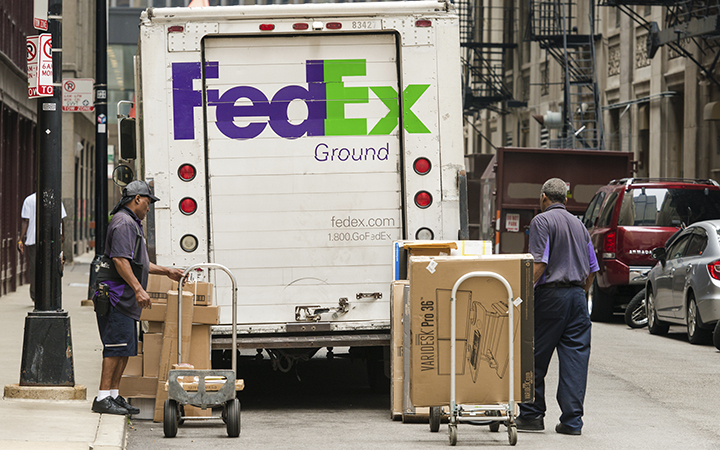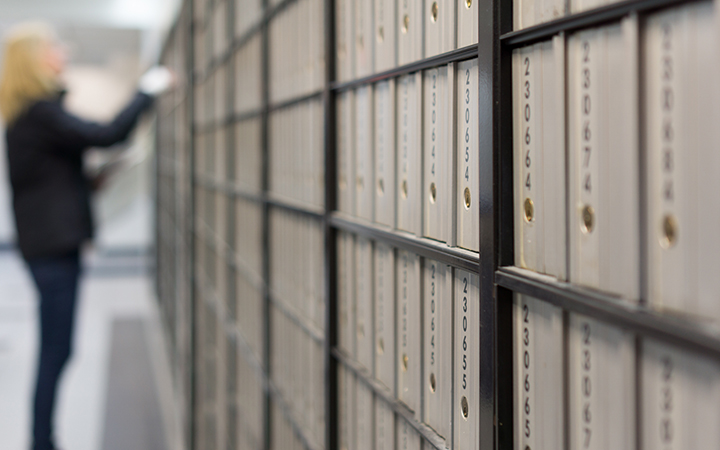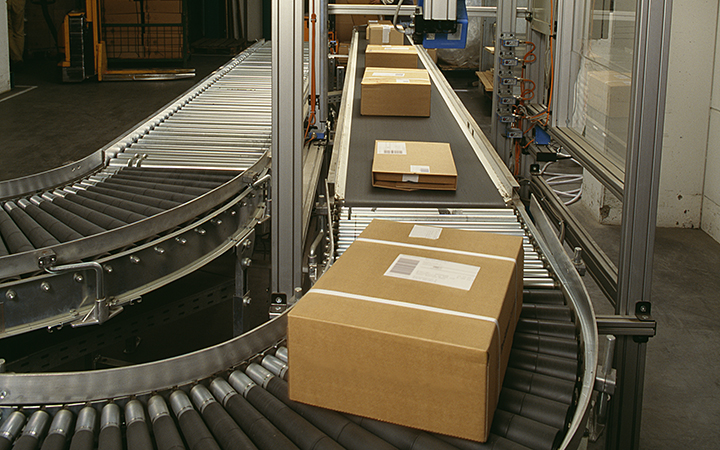
Can You Mail Weed or Edibles Legally?
The United States Postal Service has served the American people for almost 250 years as one of the oldest and most venerable US institutions. You’ll recognize agency members by those timeless navy blue shorts and the eagle logo on the side of their trucks. The USPS has been making deliveries for centuries, yet many Americans still don’t fully grasp the organization’s mailing laws. Namely, what is the risk of mailing or shipping weed or edibles through the mail?
The short answer: mailing flower, edibles, vapes or any other cannabis product is federally illegal. Postal inspectors play a key role in helping wage the nation’s War on Drugs, including cannabis. As one of the country’s oldest law enforcement agencies, they work to identify and prosecute major drug mailers and intercept illegal drug proceeds that traffickers attempt to send through the mail.
But we know what you’re thinking: How many of those billions of packages being mailed each year contain cannabis? Are people getting away with mailing cannabis? Can I mail weed and not get caught? Is it worth risking the consequences? The long answer is a little more complicated, and we’re here to break it down.
Potential penalties for mailing weed
Though states can legalize marijuana possession under local law, possession for any reason outside limited research technically remains a federal crime, as does shipping cannabis through the mail. Additionally, as a government agency, the United States Postal Service is subject to federal law; any illegal use of their services is a felony. Plus, marijuana is still a Schedule I drug.
That means anything under 50 grams can potentially get you up to five years in a federal penitentiary, and the penalties only increase as the amount grows. More than 200 federal laws protect the sanctity of the US mail, enforced by the US Postal Inspection Service.
We should also note that even if you did not mail the package and are only the recipient, your knowledge and participation in the planning of the shipping makes you just as guilty as the person who mailed the package. Once a package is seized, a person is liable to face prosecution in both the state in which it was mailed as well as the state in which it was delivered. It’s totally at the discretion of the prosecutor.
Mailing hemp and delta-8 products
With the passing of the 2018 Farm Bill came the federal legalization of hemp and hemp-derived products, which are defined as having less than 0.3% THC. Hemp products can be mailed legally within the United States by the USPS as well as private mailers like FedEx and UPS, though there are some exceptions, such as vaporizers, and legality depends on if the sender or delivery state has laws in place that prohibit it.
Now you might be thinking that the rise of delta-8 THC, a hemp-derived cannabinoid with intoxicating effects that differs from delta-9, offers a loophole. You can extract it from federally-legal hemp plants, so you should be able to ship it anywhere in the country, right? Well, no. Delta-8’s legal status currently exists in a gray area; while the DEA has listed it alongside delta-9 THC on its scheduled substances list, it hasn’t been officially scheduled as such, yet.
But some states have passed their own laws against shipping and selling it, likely because its products do not have to be tested and regulated like delta-9 THC. So if you live in a state that allows it, yes, you can ship delta-8 products (minus vapes) through the USPS.
What about mailing weed through private couriers like UPS or FedEx?
In terms of alternative carriers within the US, there are a number of private couriers. The big three outside of USPS are FedEx, UPS, and DHL. A discerning cannabis shipper might ask “Which service should I choose and are any of these a better, safer option than USPS?” Surely these private companies offer the paying customers greater protection against government interference and warrantless searches?
The answer is a resounding no. FedEx, UPS, and DHL all specify in their terms of service that they reserve the right to open and inspect any package at their own discretion. They all also specify that shipping any form of marijuana remains illegal and “unacceptable.” When you drop your package off at the FedEx or UPS store to be mailed, you’re putting the property into the possession of a third party, and the Supreme Court has ruled that giving your package to a third party “removes any reasonable expectation of privacy.” We should note that none of these couriers’ policies explicitly address delta-8 products.
FedEx
According to their terms and conditions, FedEx not only prohibits the mailing of cannabis flower and THC products, but also hemp plants, oil, and seeds. Compliant CBD products, however, can now be shipped. To compound this, in 2014, the US Department of Justice indicted FedEx with conspiracy to distribute controlled substances over its alleged role in transporting illegal prescription drugs. While this isn’t marijuana, it does strongly indicate that FedEx and other private couriers will be scrutinizing packages much more closely for any illegal substances.
UPS
UPS similarly prohibits shipping any cannabis products, but it does allow for raw hemp plants and CBD products that comply with state and federal laws (minus vapes), as long as they are shipped domestically and do not come from companies who also produce or handle marijuana or THC products.
DHL
DHL accepts packages containing hemp plants and derived products with under 0.3% THC, but only within the US. While DHL claims to inspect 100% of their packages, they and other couriers are not required to x-ray all shipments.
The USPS seems like the safest bet
In contrast to these policies, the US Postal Service seems like the preferred carrier for many drug shippers because it offers more stringent Fourth Amendment protection. Postal inspectors must acquire a search warrant based on probable cause before inspecting mail and parcels. According to the USPS:
“…first class letters and parcels are protected against search and seizure under the Fourth Amendment to the Constitution, and, as such, cannot be opened without a search warrant.”
Related
Postal Service Doubles Down on Cannabis Enforcement, Issues Nationwide Policy
However, although postal inspectors do have to obtain a warrant to search a suspicious package, suspicion alone is enough to get parcels singled out and tracked. USPS actively encourages workers and the public to get involved in the identification of packages containing drugs by offering $50,000 to anyone who provides information that leads to the arrest and indictment of a drug trafficker.
When it comes right down to the illegal transportation of cannabis via mail, USPS is—relatively!—your safest bet. And we mean relatively. Remember, the act is an illegal one and, without a doubt, carries a significant level of risk.
What happens when USPS or FedEx finds weed in packages? Are there penalties?
Crunching the numbers, the Postal Service faces an enormous task in preventing the trafficking of illicit substances. Put simply, the sheer volume of packages the carrier handles every day offers the chance that contraband packages will get delivered unchecked; the United States Postal Inspection Service enforces over 200 laws with over 1,200 inspectors. They can put their collective shoulder to the wheel, but no matter how hard they try, it is virtually impossible for the USPS to catch all wrongdoers. In 2015 alone, they seized 34,000 pounds of marijuana from mailed packages.
For third party couriers, the onus of responsibility falls on them to report illicit packages to the authorities, who can acquire warrants and open investigations. Without reported data, it’s impossible to estimate how many packages found to contain marijuana or other scheduled substances have been cited to open investigations.
Shipping drugs through the mail probably seems safer than it should be. The USPS, as well as partnering law enforcement agencies, simply don’t have the resources to try to figure out where the drugs are coming from and who’s expecting them.
Related
What Would Actually Happen if the DEA Rescheduled Cannabis?
However, it would be unfair to fault the USPS in the matter; they are just not equipped to x-ray and investigate each package, nor is there an official x-ray policy. Not only are packages given extra protection, as we’ve outlined, but the agency has also been losing money pretty much every year for the last decade due to a decrease in mail volume. The increasingly under-resourced organization faces increasing pressure to downsize, exerted by the government.
In 2016, despite turning a profit in a financial quarter for the first time in five years, President Obama still proposed the agency slash 12,000 employees in his fiscal 2017 budget. The Trump-appointed and current Postmaster General, Louis DeJoy, has made further cuts to plant locations, office hours, and mail delivery times.
Does where I’m mailing the weed to impact the risk?
In short, no. Since the USPS operates on federal law, it remains illegal and risky to mail cannabis and cannabis products anywhere in the US, including out of the country, state to state, and within a state, even if medical and/or adult-use laws are in place. Like third party couriers, the USPS does ship compliant hemp-derived products within the US if state laws allow, and most states allow the shipping of delta-8 products.
Related
Which Illegal States Are the Most Cannabis Curious?
What makes a package suspicious?
Post inspectors have a long list of signs and tells that help them determine if a package could contain marijuana or other illicit substances. In fact, in 2016 the USPS founded the Administrative Non-Mailability Protocol (ANP) program, which “does not require postal inspectors to obtain search warrants to open detained packages.” In fact, if a package is detained and they don’t receive a response form the mailer or addressee in 21 days, the package is considered abandoned and they can open it anyway. Factors that raise suspicion with packages include:
- Outdated, handwritten or missing return addresses
- Odd shapes
- Excessively taped
- Excessive postage
- Leaking unidentifiable substances
- Excessive odor
What about mailing edibles, cartridges, and concentrates?
Unfortunately, if it’s got any THC above 0.3%, any cannabis-derived edible, cartridge, concentrate, and even topical can be seized and even used as proof of a drug-trafficking crime. Even CBD and delta-8 vapes are prohibited, though CBD and delta-8 edibles and concentrates that comply with federal and state regulations are allowed.
Drug trafficking is an existing problem
Ever since the closure of the infamous Silk Road and the media furor surrounding it, people now know of the existence and the nefarious proclivities of particular groups within the Dark Net. Most Americans can access illegal substances with a simple click thanks to Internet access, Dark Net markets, and social networks like Instagram. Still, these hidden, online drug dealers don’t have access to some secret, underground delivery method us mere mortals are unaware of; they simply use the Postal Service.
According to former Attorney General Eric Holder, the problem is endemic:
“The postal service—the mails are—being used to facilitate drug dealing … It is shocking to see the amount of drugs that get pumped into communities all around this country through our mail system, and we have to deal with that.”
Leafly previously contacted the Postal Service in the hope of getting more information on their policies regarding illicit substances, in particular cannabis, being transported in the mail. The USPS promptly responded while also providing some useful data:
“The U.S. Postal Inspection Service is committed to eradicating illegal drugs and their proceeds from the U.S. Mail. We pursue traffickers of all forms of illegal narcotics—including marijuana, which remains illegal under the federal Controlled Substances Act and is therefore unmailable. Our prohibited narcotics program focuses on the disruption of organized narcotics-trafficking operations, to help protect employees and customers from the violence related to drug trafficking, and to inhibit the spread of illegal or unmailable substances into neighborhoods across America.”
On average, 1,000 suspects are arrested by postal inspectors each year for trafficking drugs and laundering drug money via the U.S mail in 2019, they made over 2,500. In addition to seizing cash obtained through criminal activity, postal inspectors have used federal forfeiture laws to seize houses, vehicles, boats, artwork, and other high-value items purchased with drug money.
Statistical trends: Mailing marijuana and other drugs
Despite these hefty risks, and the fact more than half the country has legal access to either medicinal or adult use programs, some cannabis users continue to dismiss the run-of-the-mill driving delivery system and keep mailing their product. In 2019, the USPS processed almost 55,000 packages they suspected of containing marijuana.
The black market, even in adult-use states, continues to thrive, so many might find mailing weed a lucrative endeavor. Even as DEA seizures od marijuana continue to decline year after year, it’s unclear if this trend will be reflected in weed packaged mailed.
We’ve previously reported that while the overall number and weight of marijuana package seizures has been declining for years, there was an uptick in 2016; since then, however, the numbers seem to decline, but no one really knows just how much marijuana successfully makes it through the Postal Service undiscovered. Is it just a coincidence, though, that the level of detected cannabis has fallen as more states wholly legalize?
Prohibition has been seen in the past to encourage and incentivize the black market. Perhaps, as cannabis becomes increasingly mainstream and regulated, the lure of the black market will wane through easier access and the realization that shipping the drug is no longer worth the risk of harsh federal charges.
Why do people risk getting caught mailing cannabis?
Is it really such a bad thing to put some eighths in the mail? Why are there so many people willing to take a chance on something like mailing cannabis? Actually, the data shows that it’s likely happening less and less.
Increasingly favorable legislation in the US, coupled with Canada’s federal legalization and Mexico’s recent decriminalization, means more legal avenues for cannabis careers, and by extension, a drop in related crimes. The latest data shows that while agents hit a seizures pinnacle in 2009, getting their hands on around 4 million pounds of cannabis, they only confiscated about 1.5 million pounds last year. In 2021, the DEA made less than 1,000 marijuana trafficking charges.
Related
Smuggler’s Blues: US Legalization is Crashing Mexico’s Cartel Market
But let’s face it, the USPS has been in financial trouble for the better part of a decade. In the past 10 years, total volume has declined by more than 56 billion pieces (or 26%), first-class mail volume has declined by 34.5 billion pieces, and single-piece first-class mail (primarily letters bearing postage stamps) has declined by 24.4 billion pieces.This translates to $47 billion in operating losses since 1971. Ultimately, can beggars be choosers? To paraphrase Gertrude Stein, traffic, is traffic, is traffic.
This post was originally published on July 26, 2016. It was most recently updated on May 18, 2022.
Ross Scully
Ross hails from the west coast of Ireland but currently resides in Seattle, where he is a product manager for Leafly.
View Ross Scully’s articles
By submitting this form, you will be subscribed to news and promotional emails from Leafly and you agree to Leafly’s Terms of Service and Privacy Policy. You can unsubscribe from Leafly email messages anytime.






Post a comment: